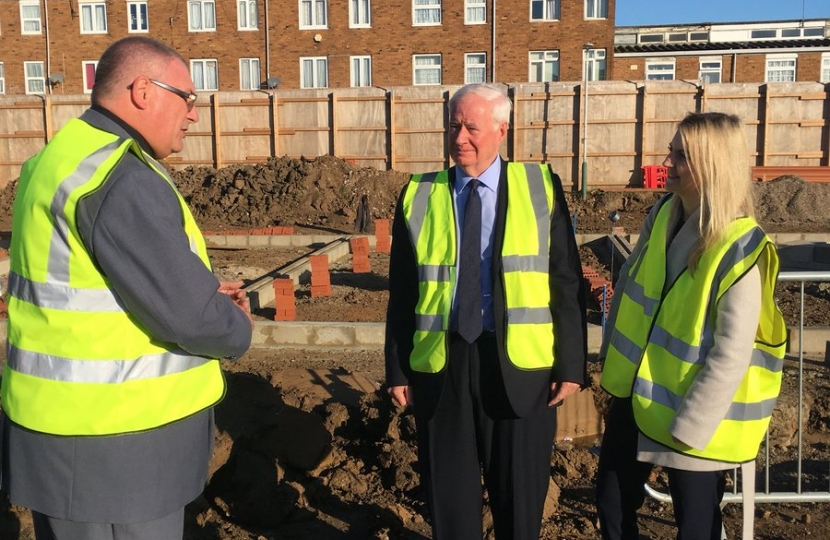
More Havering homes of all tenures could be on the way after the Prime Minister announced the scrapping of the cap on local council Housing Revenue Accounts in her speech to Conservative Party Conference. The removal of the cap, which prevents councils from borrowing against their asset base to build more homes, has been something I have been campaigning for since last October after Havering Council asked for my help in making the case to government.
Havering is planning to build around 3500 new homes for local people over the next decade to address housing need, one of the most ambitious local authority home-building programmes in the country. The borough wishes to fund the programme entirely through the Housing Revenue Account (HRA), the pot of money which each English council uses to manage housing revenue and expenditure.
The rules on housing debt for councils were tightened up in 2012 as government sought to get a grip on the public finances. However, the pressure on Havering’s HRA has been rising due to the growth in the borough’s population, making it difficult for the borough to fulfil its housing regeneration ambitions. Those ambitions include the Twelve Estates Regeneration Programme, which could deliver 3100 homes and transform the borough’s ageing council estates by building attractive, well-insulated, better proportioned homes for local people in place of existing stock. The programme is key to reducing pressure to build on Green Belt land as it relies on regenerating areas which already contain housing.
In October last year, I visited some of the new housing developments being led by the council in Cranham, Hornchurch and Harold Hill with Cllr Roger Ramsey. Council-led development is seeing new, lifetime homes being built on in-fill and vacant sites or replacing old garages or poor-quality housing. The tenure is varied, from social-rented council homes to shared-ownership and private houses, and the standard of the properties high. After the visit, I made the case for the cap’s removal directly to the Chancellor and Communities Secretary, before arranging a further meeting in March with the then Housing Minister, Dominic Raab.
I am delighted to see the Prime Minister has now accepted the case for councils to deliver more homes. While I do not wish to see additional burden placed on the public finances, I believe this move will ultimately alleviate the financial pressure on councils as they struggle to house people in costly private-rented properties. If councils can lead the development of vibrant mixed-tenure estates, retaining ownership of new council homes while gaining revenue from new private-rented and for-sale stock, the cost of housing to the public purse should diminish substantially over time.
Meanwhile, I am hopeful that an idea championed by a Havering resident to increase home ownership among private renters could be incorporated into this year’s Budget. Last year, I was contacted by a constituent who believed the sale of properties from landlords to long-term tenants should be incentivised through a cut in capital gains tax for the landlord and stamp duty for the tenant.
I have been championing this idea to Treasury Ministers over the past year as I believe if the qualifying criterion was, say, proof of a three or five-year tenancy, it would encourage stable, long-term tenancies, incentivise both tenants and landlords to behave correctly to one another, and increase home ownership in the long term. The Sunday Times suggested this week that this plan may be incorporated into this year’s Budget and I shall share any news with constituents if we make a breakthrough.

